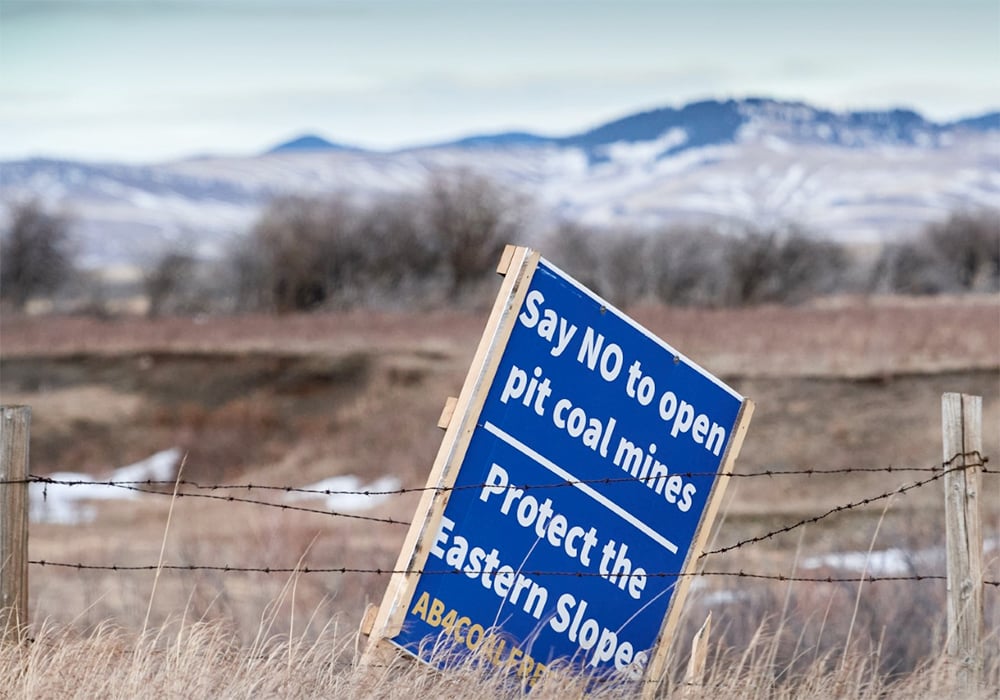Provincial government had earlier rescinded the province’s old regulations, opening the door for open pit and mountain top mining
In a stunning reversal, the Alberta government has announced it is fully reinstating the 1976 provincial coal policy following public opposition by everyone from ranchers and farmers to Canadian entertainers.
“An important part of being a responsible government is to admit when you’ve made a mistake and to fix it, and that’s what we’re doing here today,” said Energy Minister Sonya Savage during a teleconference Feb. 8.
Laura Laing and her husband, John Smith, of the Plateau Cattle Co. near Nanton, Alta., said they still had much to learn about what the decision means for proposed open-pit coal development near their ranch.
Read Also

Agritechnica Day 2: The future of tractor power, building quicker crop apps and large farms and tech
Agritechnica Day 2: The future of tractor power, building quicker crop apps with Syngenta and large farms and tech
Related stories:
- Court hears demand for coal policy return in Alta.
- Alberta pauses coal lease
- Country stars speak out against coal mining
- Water allocation change proposed in Alberta
- Alberta ranchers resist plans to ease coal mining rules
“We just heard words,” said Laing about the announcement by Savage. Only a few days earlier on Feb. 3, Premier Jason Kenney had defended his government’s decision to rescind the policy, calling it a “dead letter” that was superseded by new legislation.
However, Savage said Feb. 8 that “we recognize that rescinding this policy has caused tremendous fear and anxiety, that Alberta’s majestic eastern slopes would be forever damaged by mountaintop and open-pit coal mining. Let me be clear, this will not happen in Alberta.”
The provincial government decided last year to cancel the coal policy, opening the door to potential surface coal mining in much of the eastern slopes. It raised fears of water pollution in the Oldman River system from toxic levels of selenium caused by such mining, potentially affecting ranches, irrigated farms and communities across much of Alberta.
Public opposition ranged from two online petitions totalling more than 100,000 signatures to Canadian entertainers such as Corb Lund, Paul Brandt, Jann Arden and k.d. lang.
Along with Mac Blades of the Rocking P Ranch, Smith and Laing had asked for a judicial review of the provincial government’s decision to rescind the policy. After a recent court hearing, a decision was pending into the request.
Smith said his father, whose birthday would have been on Feb. 7, had passed away in June just after the provincial government cancelled the policy. The family has faced many sleepless nights, said Laing.
The couple recently visited the owner of a ranch affected by selenium from open-pit coal mining in British Columbia’s Elk Valley area. Not only can’t people drink well water, but the mining company must wash down the exterior of homes because of soot, said Laing, adding “these are the realities of people living in the shadow of a coal mine.”
Savage said Feb. 8 the provincial government will reinstate the policy’s four coal categories, including Category 2 lands that limit open-pit coal development across much of the eastern slopes. She also issued two directives to the Alberta Energy Regulator.
“Number one, no mountaintop removal will be permitted, and all of the restrictions under the 1976 coal categories are to apply on surface mining in Category 2 land. Number two, all future coal development and coal lease sales on Category 2 land is to be paused indefinitely pending consultations on a new modern coal policy.”
However, she said there are currently six projects that are being explored for potential development, with four of them undertaken under the coal policy before it was rescinded.
“This means that core samples are being taken, perhaps roads are being built. It does not mean that a project will be developed,” she said, adding the coal policy “did not preclude coal lease exploration, and it also means that putting it back won’t necessarily end exploration.”
A joint federal-provincial review panel is preparing a report into the proposed $800-million Grassy Mountain open-pit coal mine, which is on Category 4 land near Blairmore, Alta.
















